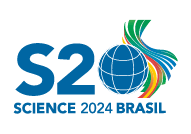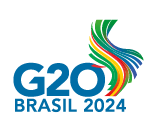President of ABC Participates in G20 Civil Society Group Meeting
The President of the Brazilian Academy of Sciences (ABC), Helena Bonciani Nader, participated on June 26th in the event “Civil Society and the G20 Agenda for a Just Transition,” organized by G20 Social, the bloc’s civil society engagement group.
As part of Brazil’s rotating presidency, the ABC is leading the discussions in Science20 (S20), the G20’s scientific branch. The group has been holding periodic meetings since the beginning of the year to develop recommendations for the G20 Summit in November. The final meeting, which will release the official S20 communiqué, will take place on July 1st and 2nd in Rio de Janeiro.
In her participation in today’s meeting, Helena highlighted that this year’s S20 motto is “Science for Global Transformation.” With this guiding principle, the group focused on five main themes that align with the 17 Sustainable Development Goals (SDGs) set by the UN in 2015 to be achieved by 2030. These themes are Artificial Intelligence, Bioeconomy, Energy Transition, Health, and Social Justice.
“I emphasize that social justice permeates all the other themes and also the 17 SDGs. We are approaching 2030 very quickly, and we still have a long way to go. At S20, we strongly believe in the idea that no one should be left behind,” stressed Helena Nader.
In the area of Artificial Intelligence, the S20 believes that there should be some form of global governance over the technology to ensure knowledge transfer and responsible use to benefit all countries. “We need to talk more about the risks related to AI, such as increasing inequalities, data privacy issues, and especially energy consumption. I see very little concern about the amount of energy AI consumes,” she assessed.
In Bioeconomy, the group emphasizes the need to invest in education and research to generate sustainable practices that bring economic development and environmental protection. The most important thing is that this economic model is inclusive, so it is necessary to involve local populations. “A lot is said about the Amazon, but we need to consider those who live there. Regarding bioeconomy, there are two questions: how and for whom?”
Regarding the Energy Transition, Helena Nader stated that Brazil is ahead and should advocate for renewable energies at S20. “We need to increase carbon capture and promote equitable access to energy, engaging local communities in this process for a sustainable energy future.”
In Health, the focus should be on equitable access to health systems, aiming for universal coverage. Nader highlighted the advent of digital health and the growing problem of mental health, especially among vulnerable populations and younger and older segments of the population. Another important point is the climatic issues influencing health, a problem that is expected to grow in the coming years.
Finally, Nader emphasized that the largest global economies play a central role in the pursuit of a more equal and sustainable world. She reiterated a point she always makes about demographic issues, highlighting that most of these economies are aging or aging very quickly, with the exception of India. “The G20 countries must adapt to changes in the workforce to maintain social security systems alongside economic development. Understanding demographic trends is crucial for political planning and to guide investment in science,” she concluded.
(Marcos Torres to BAC website)




